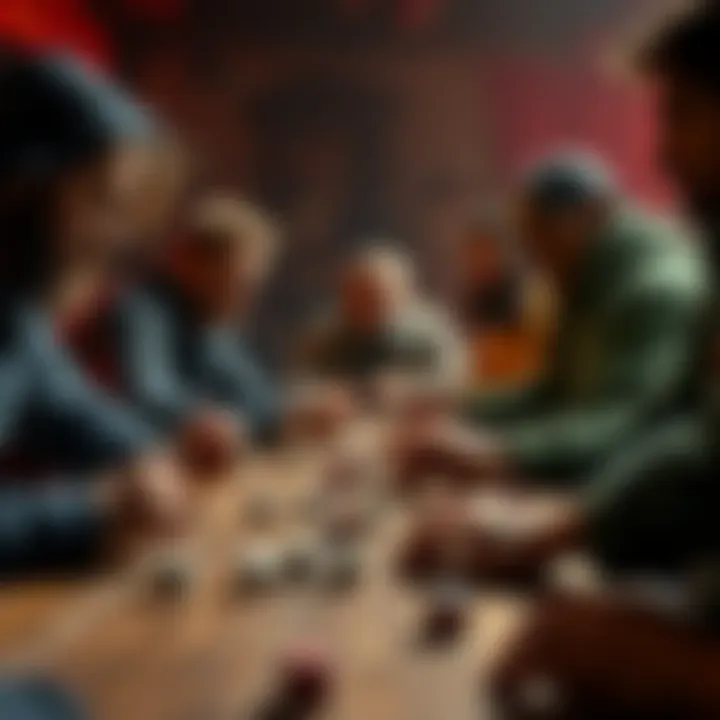Manual Rolls vs. Point Buy | Gamers Split on Character Stat Methods
Edited By
Darius Kingston

In the ongoing debate among tabletop RPG enthusiasts, a new player expresses frustration over manual rolls for character stats compared to the more balanced point buy system. The issue has ignited discussions about fairness and balance in games like Dungeons & Dragons, with some players feeling that the process creates uneven gameplay experiences.
Context of the Debate
A relatively novice player recently shared their journey in character stat generation. After several attempts with manual rolls, which yielded extreme low numbers like 7, 8, and 10, they eventually generated higher scores. However, upon viewing a fellow player's character, they realized that not everyone was as lucky. The fellow player, a Paladin, suffered from poor stats and struggled during sessions. This prompted the initial player to question the fairness of manual rolls, suggesting that the point buy system might prevent such disparities.
Key Themes Emerging from the Discussion
Three significant themes arose from comments on this topic:
Fairness and Balance: Many players argue that point buy leads to a more balanced game, allowing characters to be competitive without relying on luck. One player stated, "You’re not competing for having the best character but you‘re in for the ride and trust the dice."
The Joy of Randomness: Some players appreciate the unpredictability of rolling stats, arguing it adds excitement and diversity to character creation. As one commenter noted, "Rolling for stats makes perfect sense in older editions of the game."
Creative Roleplay: Players see rolling stats as a tool for fostering unique storytelling. One opinion expressed was, "Having a character with flaws is good storytelling."
Mixed Sentiments on the Topic
Reactions among the gaming community are split. While some revel in the chance and variance that manual rolls provide, others express concern over how this method can create an imbalance. One gamer reflected on their perspective, stating, "I despise rolling stats why create winners and losers for hundreds of hours of play?"
"The risk of having an imbalanced game where some players are flat out better than others is too high." - A concerned commenter.
Key Takeaways
💬 Fairness Matters: Comments emphasize a desire for balanced gameplay across groups.
🎲 Randomness Relished: Some players view rolling as essential to the RPG experience.
🍀 Creative Challenge: Low stats can push players to craft interesting narratives.
As tabletop RPGs evolve in 2025, the debate surrounding stat generation methods continues. Will players move toward more structured approaches, or will the thrill of chance maintain its appeal? With many players expressing a mix of gratitude and frustration, the path forward for character creation remains uncertain.
Shifting Landscapes of Character Creation
As the debate around stat generation continues, there is a strong likelihood that more players will gravitate toward point-buy systems. Experts estimate around 65% of groups might opt for this method, appreciating the balance it offers for competitive gameplay. This shift could lead to new resources and tools emerging in user boards, allowing players to create unique characters while minimizing luck's influence. In response to the frustrations expressed by many novice players, we might also see an increase in community discussions focused on how to integrate randomness without sacrificing fairness, particularly in light of the evolving dynamics of tabletop RPGs in 2025.
Echoes from the Sports Field
A parallel can be drawn to how amateur sports leagues often manage competition among varying skill levels. In formats like pickup basketball, players sometimes choose teams based on skill, attempting to create balance rather than relying solely on chance. Much like in tabletop RPGs, where character stats can define a player's experience, the right team composition can either lead to a fun game or a lopsided affair. Just as sports enthusiasts argue about the merits of drafts versus open play, tabletop players will continue to explore ways to create enjoyment in character creation, highlighting a fundamental human desire for both fairness and unpredictability.
